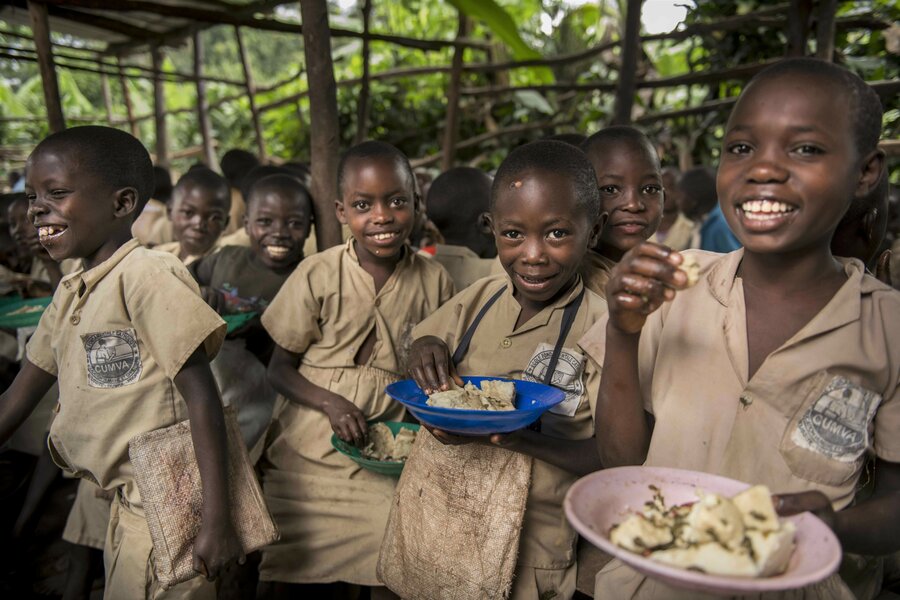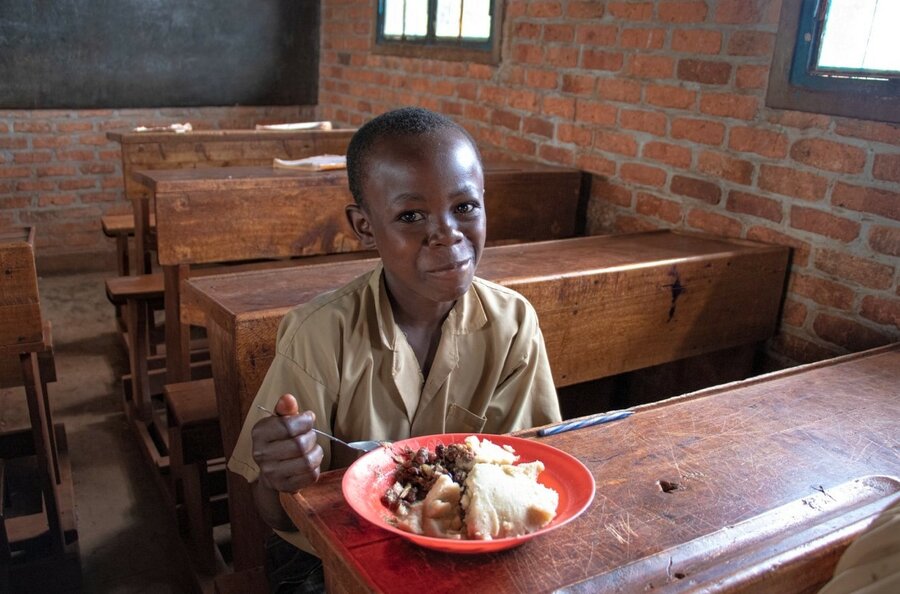The Miracle Mackerel: How a Contribution of Fish Is Buoying the Diets of Nearly 300,000 Schoolchildren in Burundi

“I want to work in finance and ensure that my family has a good life,” says 14-year-old Niyibizi, a student at a primary school in Muyinga province in northern Burundi.
Niyibizi is one of over 500,000 children in Burundi who receive daily school meals which include rice, corn flour, beans and leafy greens through United Nations World Food Programme (WFP) homegrown school feeding. This resilience-building program empowers communities with the agricultural skills and resources they need to become totally self-reliant. By growing crops, communities can supply schools with the ingredients needed to provide a diverse diet for schoolchildren.

The United Nations World Food Programme (WFP) supports over 500,000 children with school meals in Burundi.
But not all the food is homegrown – or even plant-based.
Since 2019, the Government of Japan scaled up assistance supplying schoolchildren with food of a different sort – fish! High in protein, vitamins and minerals, the mackerel is a welcome dietary addition for 270,000 children living in the hungry regions of Bujumbura, Kirundo and Muyinga.

270,000 schoolchildren in Burundi receive fish donated by the Government of Japan.
Niyibizi’s parents are small-scale farmers who live three miles away from his school. One meal per day is the norm in this family and a daily hot lunch is a motivating factor for him to make the long journey to and from school by foot.
“I like the food we eat at school and especially fish with beans,” he says. “If we ate fish every day I would never miss school even if I were sick.”
For rural families like Niyibizi’s – who depend on tiny pieces of land to feed many mouths – maintaining a healthy and balanced diet is a challenge. The U.N. World Food Programme’s school meals program promotes access to education through nutrition and helps to break the circle of poverty and malnutrition.

A hot lunch at school is an incentive for Niyibizi to walk three miles to school every day.
“Mackerel contains proteins which are important for physical and intellectual growth in children,” says Niamkeezoua Kodjo, a nutritionist for the U.N. World Food Programme in Burundi.
“It’s also rich in omega-3 fatty acids which are essential for brain development and vitamins and minerals which ensure bone growth.”
In 2020, the Government of Burundi contributed $2.5 million to the school meals program. It has identified school meals as the largest and most important safety net for vulnerable people in the country.
This story originally appeared on WFP’s Stories and was written by Aurore Ishimwe. To learn more and join the fight against childhood hunger, click here.




